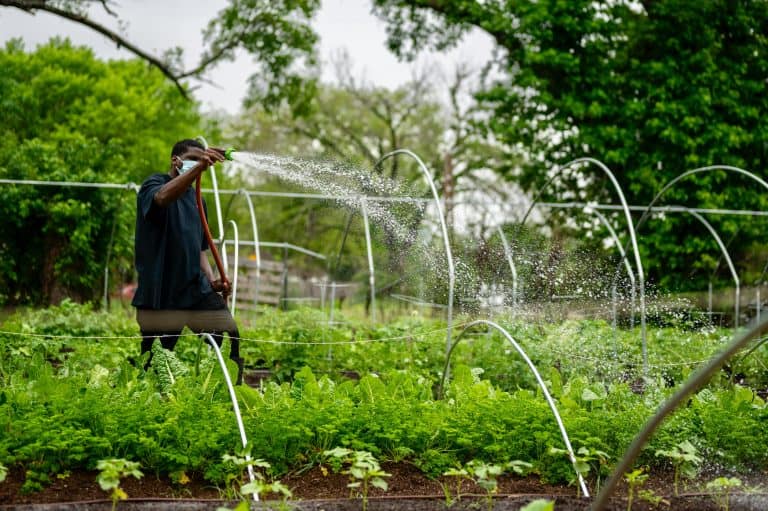Urban farming is not a new concept. It has historical roots dating back centuries. Urban farming is gaining attention as a sustainable solution to food production in cities, addressing food security and environmental concerns. Some key takeaways are that urban farming encompasses a wide range of activities, from backyard gardening to commercial farming operations. Community agriculture promotes food security and fresh produce to communities. City farming is a rapidly expanding field with various techniques and benefits. Urban agriculture can take many forms, including vertical farming and rooftop farming. Sustainable urban farming practices are becoming increasingly important.
What Is Urban Farming?
Understanding what urban farming is helps people understand its importance today. According to the article Urban Farming Everything You Need to Know, “Urban farming is about cultivating and distributing food in urban areas, promoting food security and sustainability.”
Food security is very important in all communities for families and people who face food insecurity. Having a sustainable way to cultivate and distribute food in urban communities gives people hope because they know they will be able to provide food for their families every day. Another way urban farming is so sustainable is that urban farmers use various techniques to grow a wide variety of crops. The techniques they use are hydroponics, aeroponics, and traditional soil-based farming.
Benefits Of Urban Farming
Along with core concepts of farming revolving around sustainability, community engagement, and innovating farming practices, there are also benefits, such as the urban farmers’ mission. The same article states, “The mission of an urban farmer is not just to grow food but to contribute to the well-being of the community. This involves promoting community farming, initiatives, educating the public about sustainable practices, and working towards environmental stewardship. Urban farmers play a crucial role in enhancing food security, reducing the carbon footprint associated with food transportation, and fostering community development through their work.”
The benefits and the urban farmers’ mission show what is important to farmers and people who wish to learn and begin their own farming. Through community engagement, people learn about initiatives, education about sustainable practices, and environmental direction.
Enhancing food security, along with reducing the carbon footprint associated with food transportation to make sure food is provided to communities, shows how the community development of farming is so important.
Why Urban Farming Matters Today
Urban farming matters today because in urban areas, food security in urban areas may be scarce, and access to fresh produce is limited. Food sustainability is very important and is no longer a choice, but a necessity. Food insecurity is a problem that won’t be solved overnight, but with urban farming, it is and will continue to be a step in the right direction.
In an article, Could Urban Farming Be The Future of Food Sustainability? they say, “Urban farming, which brings food production directly to the heart of cities, is emerging as a response to these pressures. The idea is simple: grow food where the people are.”
The future of urban farming and food security is not a new concept, nor is it a choice in urban areas where food insecurity is happening. Urban farming is important because it allows families and people to grow food that is sustainable and healthy, enabling them to have food on their tables consistently and provide for their families.
Final Thoughts
The future of farming and food security is not a new concept, nor is it a choice where food insecurity is happening in urban areas and communities. Farming is important because it allows families and people to grow food that is sustainable and allows them to have food on their tables.
Community, rooftop, vertical, and backyard gardening and farming provide people and families with ways to provide nutritious food for their families. And farming may help combat the food deserts we hear about as well. Farming gives a lot of opportunities to provide food for those experiencing food insecurity and those living in urban areas and communities.
Food security is very important for everyone and farming helps this problem, even though food insecurity is a problem that won’t be solved overnight, but farming is a step in the right direction to solve these problems or lessen the impact food insecurity has on the world.







